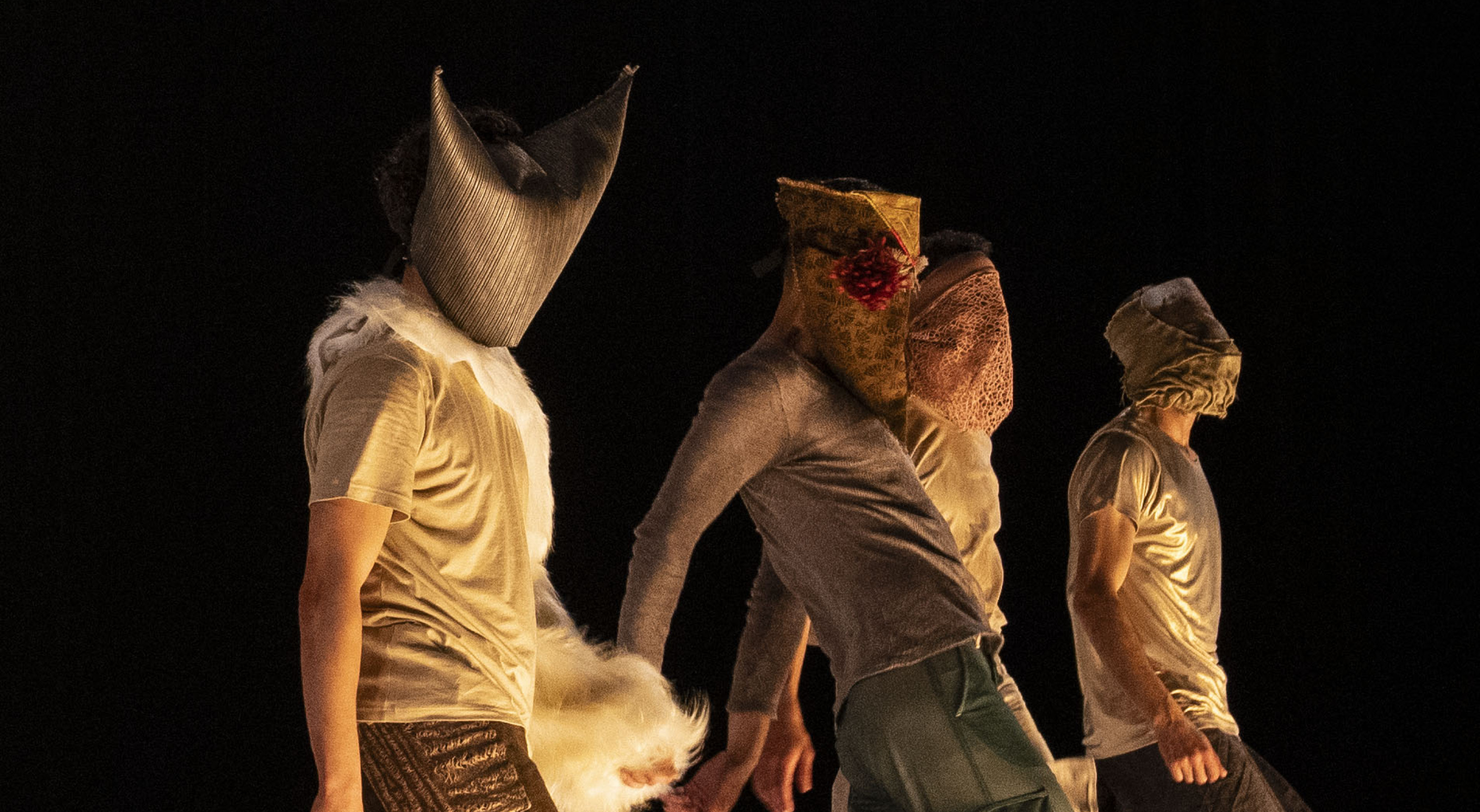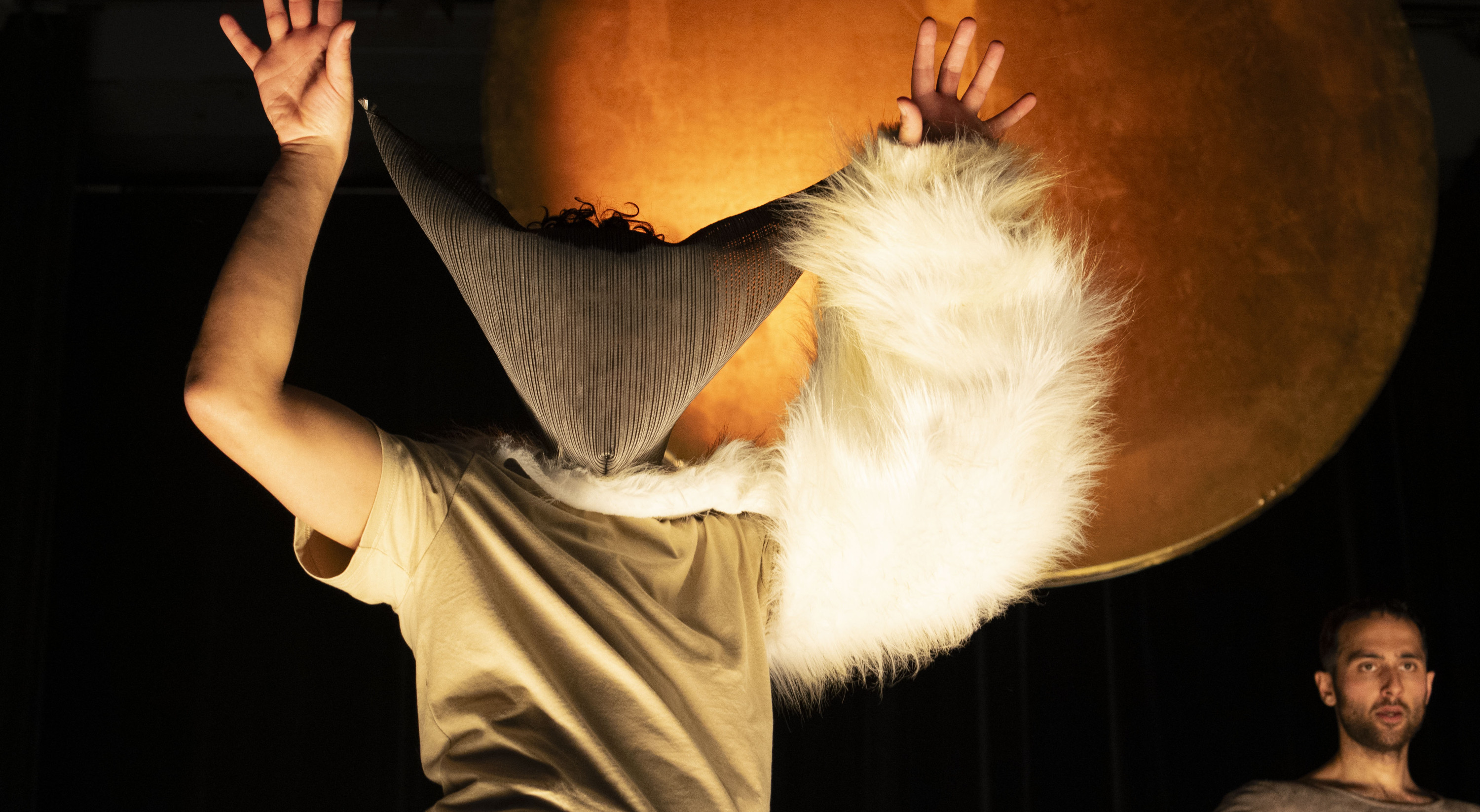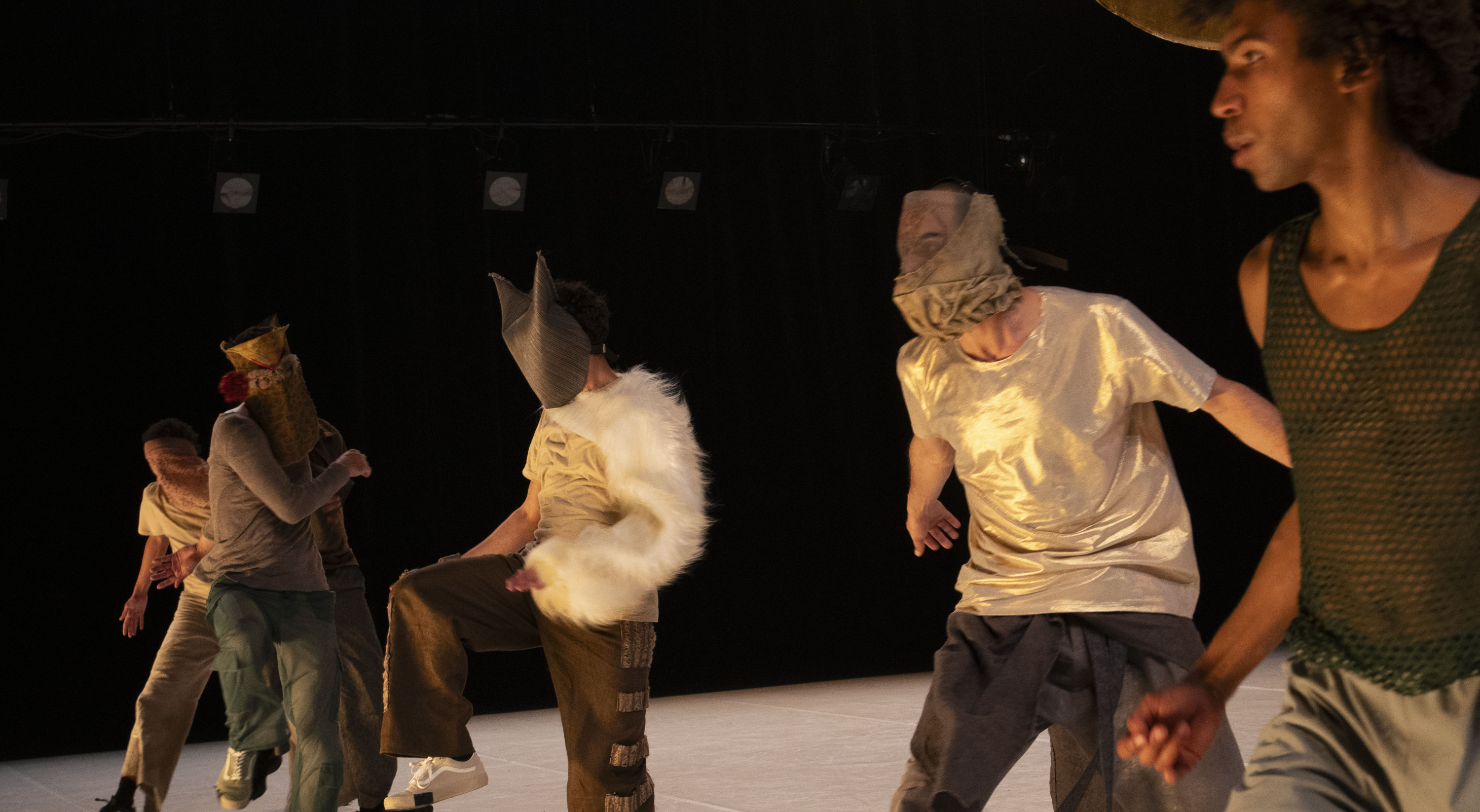Radouan Mriziga
Magec / the Desert
octoberoct 15 – 18
Wednesday october 15
20h
Thursday october 16
20h
Friday october 17
20h
Saturday october 18
18h
Concept, choreography and scenography Radouan Mriziga.
Creation with and performance Robin Haghi, Bilal El Had, Hichem Chebli, Feteh Khiari, Sofiane El Boukhari, Nathan Félix. Live music and sound design Deena Abdelwahed. Video Senda Jebali. Costume design Salah Barka. Assistant costume designer Rim Abbes. Research Maïa Tellit Hawad. Texts Mahmoudan Hawad. Technical direction Zouheir Atbane. Technician Dries Van de Velde. Production management Emna Essoussi. Company direction Cees Vossen.
Production A7LA5
Co-production Sharjah Art Foundation; Kunstenfestivaldesarts (Brussels); Festival d’Automne à Paris; De Singel (Antwerp); Festival d’Avignon; PACT Zollverein (Essen); Culturescapes; Tanz im August – HAU Hebbel am Ufer (Berlin)
With the support of the Flemish Community, the Flemish Community Commission (VGC), and the Belgian Federal Government’s Tax Shelter
Thanks to Destelheide et L’Art Rue – Festival Dream City
The Festival d’Automne à Paris is a co-producer of this performance and presents it in collaboration with the Théâtre Public de Montreuil – Centre dramatique national.
![]()
![]()
![]()
![]()
![]()
![]()
![]()
The TPM team is at your disposal to help you make the most of your visit. Please do not hesitate to contact them by telephone on 01 48 70 48 90 or by e-mail at billetterie@theatrepublicmontreuil.com
Following on from Atlas / the Mountain presented in 2024, Radouan Mriziga continues his cycle dedicated to the mountains, the desert and the sea. In a world ruled by human ambition and technology, these wild spaces defy all attempts to be tamed. Magec / the Desert rethinks our relationship with nature and reveals the wisdom of arid expanses.
From the Sahara to the steppes of Central Asia, deserts are the cradle of myths, literature and knowledge. The space for reflection that they provide us with reveals our own insignificance as human beings. Radouan Mriziga choreographs the desert not as an empty space, but as a geography of knowledge, requiring humility and reciprocity, as opposed to domination. He is interested in its rhythms, ecologies and systems of knowledge, embodied by elements such as the sundial. Drawing on the crafts, music, and practices of the people that live in them, Mriziga probes harmony and interconnectedness, and unveils what these vast expanses can teach us about abundance. As part of a collaborative practice, he interweaves rhythms and texts, movement and sound so as to generate a polyphony of perspectives and – like the layered textures of the desert – resists any form of singularity. In this second chapter, Magec / the Desert invites us to perceive abundance in the context of this silent immensity and to reconnect with the intelligence of the natural world.



